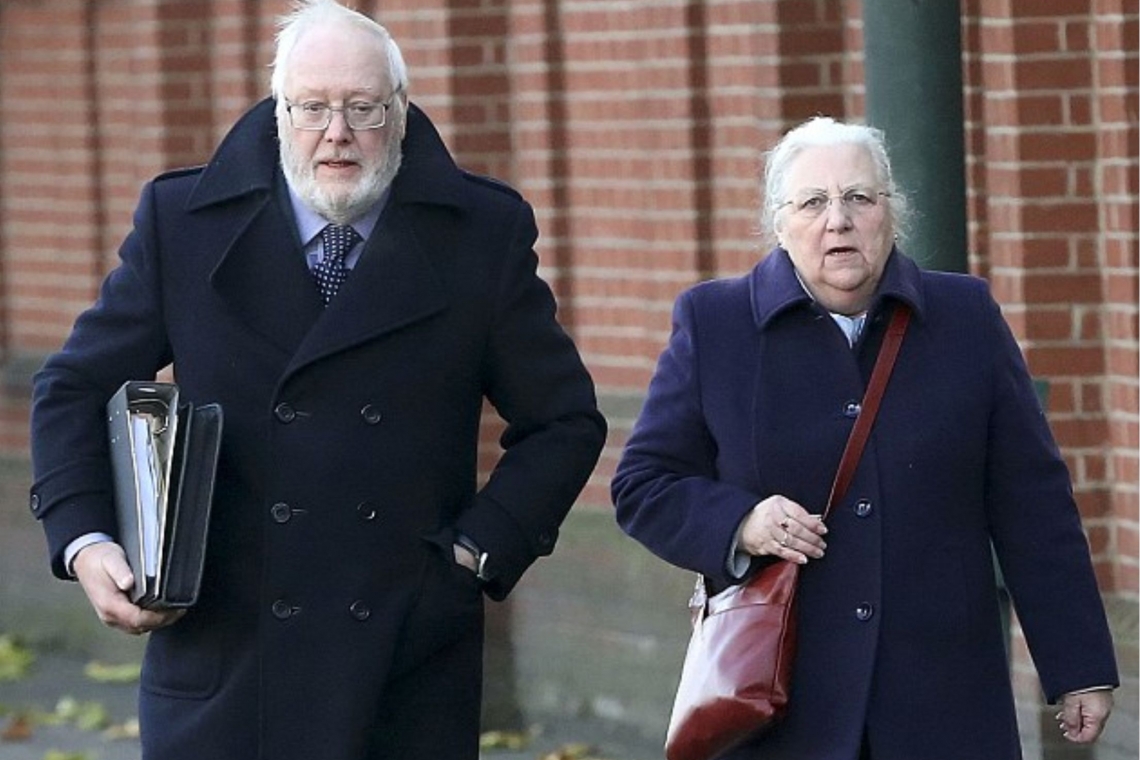A RETIRED judge and her husband forged a relative’s will to steal two cottages, a court has heard.
Margaret and Alan Hampshire also used a cousin’s bank account as their “personal piggy bank”, the jury was told.
The Hampshires allegedly took advantage of two family members to snatch the cottages and convert them into a single property.
One was owned by Mrs Hampshire’s cousin Martin Blanche and was worth £250,000 when he died aged 60 in 2007.
It was left to another cousin, Josephine Burroughs, but the Hampshires forged Mr Blanche’s will so the property went to their daughter, it was alleged.
The next door cottage in Rolleston, Notts, had been jointly owned by Mr Blanche and Mrs Burroughs.
The Hampshires allegedly plundered £44,000 from Mrs Burroughs’ bank account to convert the two buildings into one home.
Mr Hampshire also dipped into the same account when he bought himself a tractor, Nottingham Crown Court heard.
After kicking up a fuss, Mrs Burroughs was credited with £3,000, said Martin Hurst, prosecuting.
He told the jury: “That is them having been caught using her bank account as their personal piggy bank.
“Get caught and here is a cheque. Don’t worry, all the rest of your money is perfectly safe. That’s me interpreting what the conversation may have been.”
Mrs Hampshire, 69, a former solicitor and district judge, and Mr Hampshire, 67, of Wickham Bishops, Essex, deny forging Mr Blanche’s will, forging a false document, transferring criminal property and six counts of theft.
She also denies fraud by abusing her position of power of attorney, and doing an act tending or intending to pervert the course of justice.
In her role as a solicitor, Mrs Hampshire had experience dealing with probate and wills, the court heard.
Her cousin Mr Blanche was “a simple man” and there was a “significant question mark over whether in fact he could actually read,” said Mr Hurst.
He added: “This case concerns what the prosecution would say was Margaret Hampshire’s desire, willingly aided by her husband, to inherit two estates on death comprising of two properties, so they could develop a country cottage in Rolleston and have significant sums to live on.”
The court heard the Hampshires “saw this as an opportunity” to convert the two cottages into one, intending to live there.


